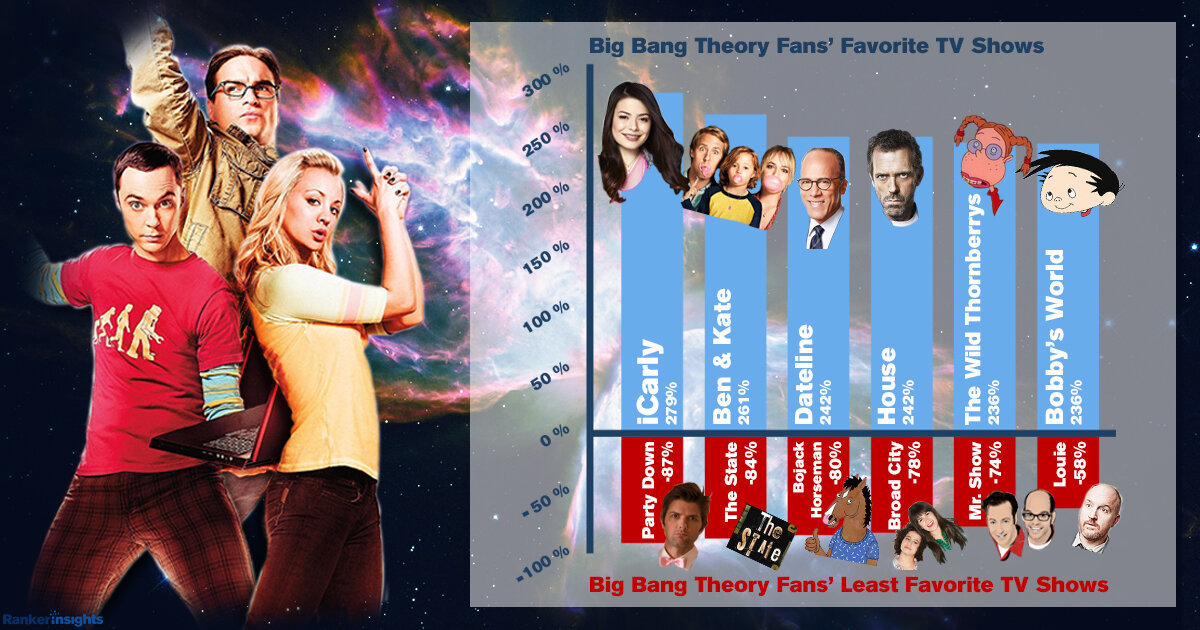Let’s look at the data. Even if you discount The Big Bang Theory creator Chuck Lorre’s other big hits Two and a Half Men, Mom, Grace Under Fire, Mike & Molly, and Dharma & Greg — all 250%+, by the way — you’re still left with Friends, 2 Broke Girls, How I Met Your Mother, Reba, Rules of Engagement, 8 Simple Rules, and My Wife and Kids dominating the upper echelon, with affinity scores of 225% or more. All of these shows are studio-based, multi-camera, laugh-track-heavy sitcoms. Seinfeld, which famously rejected hugging and learning, is notably absent from this tier, sitting at 71%. A mix of comfortable TV staples including popular police procedurals (NCIS, CSI: NY) and light dramedies (Hart of Dixie, with a whopping 473%, as well as 7th Heaven) round things out.
So no, The Big Bang Theory fans do not appear to share the tastes of the show’s main characters. Anything related to superheroes, for example, is walloped in the the rankings by the likes of mainstream favorites iCarly, House, Dateline, and even ‘90s cartoons such as Bobby’s World and The Wild Thornberrys. Perhaps the most damning revelation? There’s not a single iteration of Star Trek on TV with an affinity score even half as high as Ben and Kate, a 2012 sitcom FOX canceled before finishing a season. That’s pretty shocking, considering the constant stream of Trek references on The Big Bang Theory, and that multiple former Trek cast members have made cameos. Wil Wheaton (Star Trek: The Next Generation’s Wesley Crusher) even has a recurring role as a fictionalized version of himself.
It’s also telling to look at the shows The Big Bang Theory fans have the least affinity with. Unsurprisingly, single-camera critical and cult favorites such as Louie, Party Down, Broad City, Veep, Peep Show, and Master of None all have negative affinity scores, along with hip sketch comedy classics such as Mr. Show and The State. The Big Bang Theory fans, it appears, don’t like hoity-toity hipster comedies, preferring instead the cozy world of the American sitcom. That’s not exactly shocking, but it is out of line with the tastes of the show’s comic book-obsessed cadre of characters, who revel in their knowledge of obscure pop culture.




